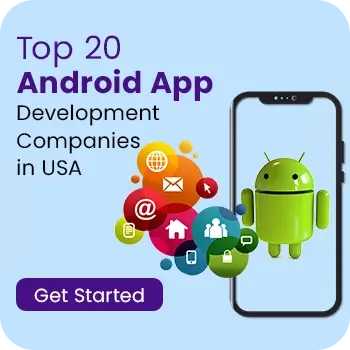Table of Contents
Marketplace apps serve as digital hubs, uniting numerous buyers and sellers. Imagine a bustling market, but online. From anywhere, users can purchase or offer items. Unlike standard online stores with a single vendor, these apps host multiple sellers. They display various products or services, from clothing and tech items to freelance services. The latest Marketplace App Development progress has ushered in new online payment ways.
Why The Rising Popularity?
In today’s digital age, our approach to business has evolved. Many have smartphones and frequently use apps for purchasing, listing items, or handling work. Studies reveal that close to 2.14 billion individuals are projected to shop online by 2023, highlighting e-commerce’s increasing role.
Here’s what makes marketplace apps unique:
- Simplicity: Users can effortlessly explore different items or services, compare prices, view reviews, and choose smartly.
- Variety: With many sellers present, users have a wide choice range.
- Trust: Through ratings and comments, customers gain insight and confidence. They can learn from previous buyers’ experiences.
- Benefits for Sellers: Sellers gain, too. They can tap into a ready platform without creating a distinct website or app. It’s valuable for smaller firms or individual sellers.
- Economic Surge: These platforms offer smaller businesses a chance to thrive. Recent figures reveal that such businesses witness a 38% earnings hike on these platforms.
Choosing a reputable marketplace app development company is essential. They craft easy-to-use apps, ensuring straightforward navigation, protected payments, and a satisfying user experience. Owing to them, launching a marketplace app has become simple.
Marketplace apps aren’t just a trend. They’re transforming global business, giving buyers and sellers convenience and expansion possibilities. Their significance in the e-commerce sector is firm. With continuing tech progress, their influence is set to grow further.

What is Marketplace App Development?
Marketplace App Development is about designing, building, and refining a digital space connecting many buyers and sellers. It aims to provide sellers with a platform to showcase their goods or services while allowing buyers to browse, compare, and purchase what they like. This approach is like an expanded form of e-commerce tailored for a broader user base.
With the rise of online trading places, there’s a surge in the need for high-quality online marketplace app development. These aren’t just typical e-commerce sites that serve as online shops for single sellers. Instead, marketplace apps invite a bunch of sellers to join. To handle this variety, there’s a need for solid backend structures, refined search tools, strong review systems, and more – all to guarantee everything runs smoothly and users are happy.
Instead of focusing on sales, a mCommerce app development company concentrates on the buying and selling journey. Sellers have the right resources to handle their listings, offers, and clients. On the flip side, buyers receive a thorough shopping adventure, from finding a product to post-purchase care. Such an app requires real skill, considering its distinct hurdles and characteristics. That’s where a custom mobile app development company steps in, offering specialized know-how.
Some Notable Marketplace Apps
- Amazon: Once a humble online bookshop, Amazon has grown into a premier marketplace, displaying many products – from electronics to everyday needs – offered by many global sellers.
- Etsy: Recognized for its handmade crafts, antique finds, and artistic materials, Etsy caters to artists, giving them a platform to display their creations.
- Upwork: A change from the norm; Upwork isn’t about physical goods. This service-oriented marketplace links freelancers with potential employers. Whether writing jobs or tech tasks, Upwork has a spot for it.
- Airbnb: Revolutionizing the travel industry, Airbnb is now a top pick for holiday rentals. Property owners list their spaces, and travelers reserve them for temporary stays.
- Uber: Moving away from products, Uber is about transport services. It matches drivers with individuals needing a ride, proving marketplaces aren’t just about goods.
These instances show the adaptability and promise of marketplace platforms. Each catered to a distinct market demand and utilized Marketplace App Development to fulfill it.
To sum it up, the future is bright for marketplace apps. As our world becomes even more digital, these platforms, with their ability to bridge vast groups of sellers and buyers, paired with the know-how of firms adept in online marketplace app development, will undoubtedly hold a significant spot in our digital-first economy.
The Rising Importance of Marketplace Apps
Shopping habits have dramatically evolved. No longer do people primarily roam malls or local stores. Instead, many now prefer swiping or clicking on devices, be it smartphones or computers. This isn’t just a fleeting trend; it’s how a significant portion of the global population shops nowadays.
Where does Marketplace App Development come into this modern shopping framework? It’s simple. While e-commerce laid the groundwork for online shopping, marketplace apps took it further. Instead of navigating multiple online stores, users can explore many sellers in one spot. Imagine having a virtual mall at your fingertips, offering many choices. To attract Apple device users, partnering with a top-notch iOS app development agency to develop marketplace apps is wise.
Perks for Both Sellers and Shoppers
Both sellers and users reap the rewards of marketplace apps.
For Sellers:
- Broad Audience Connection: For new or smaller sellers, these apps offer access to a vast pool of potential customers without spending a fortune on advertising.
- Affordable Start: Setting up an online storefront can be challenging. With marketplace apps, sellers avoid hurdles like establishing a separate site or handling payments. Simply register, add products, and you’re ready to go.
- Instant Feedback Loop: Quick access to reviews and ratings helps sellers adjust and improve their offerings.
For Shoppers:
- Choices Galore: The saying, Variety makes life interesting, rings true with marketplace apps. Shoppers get to pick from a vast array of products, ensuring they find the best fit.
- Unified Platform: Everything is unified, from searching for products to checking out. There’s no need to jump between sites.
- Better Prices: With so many sellers in one place, competitive pricing emerges, often leading to exciting deals for buyers.
- Reliability: User reviews offer a peek into the quality of products and the trustworthiness of sellers, guiding better purchase decisions.
Considering these advantages, it’s clear why many business-minded individuals aim to develop marketplace apps. These platforms cater to the changing preferences of today’s consumers and open vast opportunities for sellers. As technology evolves, these top trending apps are bound to grow in features and significance, cementing their role in retail.
In essence, marketplace apps are shaping the next chapter of e-commerce. They lead the charge in the digital shopping revolution, consistently elevating the shopping experience. For businesses, venturing into Marketplace App Development might lead to sustained growth and enriched customer relations.
How to Develop a Marketplace App?
Constructing a marketplace app goes beyond coding or attractive designs; it ensures exceptional functionality. Let’s explore the roadmap of Marketplace App Development.
Step 1: Identify Your Sector – Embrace Specialization
Kick-off by pinpointing the specific arena your app will focus on. Just as in any venture, having a specialized segment can differentiate you. Being clear is key, whether it’s a hub for vintage outfits, eco-friendly items, or freelance tasks.
Specializing helps in:
- Targeting a precise audience.
- Refining promotional strategies.
- Evading broad competition from established giants.
Step 2: Understand Your Audience – Grasp Their Needs and Behavior
After deciding on your sector, recognize potential users. Understand their desires, shopping behaviors, challenges, and desired app features.
Important steps here include:
- Conducting questionnaires.
- Organizing focus group discussions.
- Studying analogous platforms.
Equipped with this info, mobile app development companies can design apps that resonate with user desires, fostering loyalty and interaction.
Step 3: Design the User Interface (UI) – Emphasize Intuitiveness
The UI is instrumental in your app’s acceptance. A messy, perplexing UI can push users away, while a straightforward, user-friendly interface can enrich their experience.
Essential UI guidelines:
- Maintain simplicity.
- Facilitate smooth navigation.
- Accentuate primary buttons like Buy, List, or Message.
- Opt for clear visuals and uniform font styles.
Tailoring the iOS app development marketplace UI to comply with Apple’s standards is crucial for those focusing on Apple users.
Step 4: Choose Suitable Tech Tools – Harmonizing Scalability with Adaptability
Your app’s foundation is the tech stack it’s built on, including chosen coding languages, tools, and systems.
When picking these resources:
- Scalability: Ensure the app evolves as your user base does.
- Modularity: Upgrades or feature additions should be hassle-free.
- Safety: Prioritize user data protection.
- Economic Viability: Align costs with benefits of tools or platforms.
Step 5: Embed Secure Payment Gateways – Establish Credibility
A crucial component of your mobile app ideas is its transactional functionality. Users must trust the payment process.
To bolster payment security:
- Collaborate with renowned payment partners.
- Uphold top-tier encryption for transaction data.
- Stay updated on security norms and possible threats.
Step 6: Assess & Launch – Fine-Tuning Ahead of Debut
Before unveiling your app, thorough evaluations are paramount to confirm optimal performance and rectify any issues.
- Alpha Assessment: Preliminary evaluations by developers.
- Beta Assessment: Reviews by a select user group for insights.
- Load Analysis: Verifying app performance under user spikes.
- Safety Checks: Confirm that all protective measures are operational.
Once tests are greenlit, it’s launch time. Yet, the journey continues. Routine app modifications based on user feedback, market shifts, and tech progress ensure it remains attractive and functional.
To conclude, fashioning a marketplace app demands meticulous planning at every stage. Teaming up with leading mobile app development companies can streamline this venture, resulting in an operational and user-centric app.
Marketplace App Development Cost
Setting out to build a marketplace app involves understanding its financial side. Knowing these costs aids in planning effectively, ensuring you achieve your desired results within your budget. Let’s uncover the factors impacting the Marketplace App Development costs.
Factors Impacting Costs
While you might believe costs are only about hiring mobile app developers, there’s more beneath the surface. Numerous decisions can either push up or reduce the eventual cost.
Choosing the Platform (iOS, Android, or Web)
The platform you pick can reshape your budget:
- iOS: Developing for iOS might be quicker, given the limited device models. However, engaging an exclusive iOS developer or a dedicated iOS app development marketplace might have a premium price.
- Android: Given the diverse Android devices and screen dimensions, there could be more testing, slightly bumping up the cost.
- Web: Web-focused apps might be economical since they cater to all gadgets. But, they might not offer the finesse of native apps.
Features Integration
Your expense grows with the complexity of features. An app with basic tasks costs less than those loaded with high-end features like augmented reality, AI-driven chat, or intricate payment modules.
Developer’s Locale and Skills
Where your developers are based affects your costs. A team in North America might bill more than one in Asia. But, the top app development companies promise excellence, irrespective of where they’re based. Their proficiency, track record, and prior endeavors can tweak their pricing.
A Rough Estimate and Breakdown
Exact numbers for app creation can swing, but a fundamental marketplace app could begin at $20,000, escalating to $200,000 or beyond for advanced multi-platform versions. Here’s a general split:
- Designing: About 10% of your funds.
- App Development: Takes up nearly 50% of your budget.
- Backend Infrastructure: Uses around 25% of your budget.
- Testing and Release: Accounts for nearly 10% of your budget.
- Miscellaneous Costs (like licensing or app store fees): Cover roughly 5% of your budget.
Smart Ways to Minimize Costs Without Sacrificing Quality
Cost-saving is great, but compromising quality can backfire. Here’s how to be budget-wise:
- Opt for MVP: Begin with a Minimum Viable Product. Launch a basic version, gather feedback, and then enhance it. This ensures you invest in features users genuinely want.
- Use Open-source: Numerous high-quality open-source tools can reduce app development costs.
- Pick Your Team Wisely: Collaborating with a renowned app development firm might be more economical than individual freelancers due to bundled offerings.
To wrap it up, while costs for Marketplace App Development can vary, understanding them aids in informed budgeting. Balancing between quality and expenditure is vital. Treat your app as a long-term asset; its prospective returns could be substantial with the right approach. Teaming up with the best app development companies in USA and keeping the above factors in mind can set your app on a trajectory for launching and standing out.
Secrets to Thriving in Marketplace App Development
Delving into Marketplace App Development isn’t straightforward, especially considering its ever-changing environment. Getting the app out there is merely the first step; the genuine hurdle is implementing efficient strategies that promote lasting success. Let’s delve into tips to elevate your marketplace app.
Prioritizing User Experience (UX)
At the core of any leading app lies an impeccable user experience. It connects users with your platform, ensuring they find what they seek effortlessly.
- User-friendliness: The app should be clear-cut in navigation. A clean design aids users in effortlessly navigating through.
- Swift Performance: Users value prompt actions. Your app must deliver quickly to maintain their attention.
- Mobile-First Thinking: Given the surge in marketplace mobile app development, ensuring your app suits mobile devices is crucial.
- Encourage Feedback: Enable users to share their thoughts. This provides a window into what they value or what might need improvement.
An app with excellent UX doesn’t just attract downloads but encourages repeated use.
Building Trust with Users Through Transparency
Being open about app operations is key in an age of heightened data concerns.
- Transparent Data Practices: Clearly state the data you gather and its use. This openness nurtures trust.
- Uphold Transaction Safety: Top-tier security measures are vital for marketplaces that process payments.
- Maintain Open Channels: Interact often with users through app alerts or direct chats.
- Feature Real Reviews: Displaying actual user feedback can reassure new users about your platform’s credibility.
Building trust sets the stage for long-term user loyalty.
Although enterprise mobile application development may appear complex, focusing on these core aspects can distinguish your marketplace app. Enterprise Application Integration is about merging tech expertise, gauging user preferences, staying current, and promoting clear communication. Addressing these areas promises not just initial traction but sustained user dedication.
Challenges in Creating Marketplace Apps and How to Overcome Them
Every project comes with its hurdles, and Marketplace App Development isn’t any different. Crafting a smooth platform for sellers and buyers means addressing several challenges head-on. Let’s explore these potential bumps and offer practical solutions for them.
Handling High Transaction Rates
A thriving marketplace naturally sees an influx in transactions. This growth is welcome but introduces certain complexities.
Challenges:
- Maintaining app stability during high transaction times.
- Quickly processing transactions to keep users content.
Solutions:
- Strong Backend Setup: Utilize a powerful server structure to manage high demand.
- Regular App Enhancements: Continually improve app and database performance. Tapping into Android app development services or iOS app development services can offer specialized tips for quicker app responses.
- Plan for Growth: Create an app that’s prepared for expansion. Cloud-based solutions can adjust automatically based on traffic.
Protecting User Data and Safety
In today’s online era, data security and user privacy are paramount.
Challenges:
- Safeguarding all user information.
- Making sure all transactions are secure.
Solutions:
- End-to-end Encryption: Ensure all data, especially payment details, is encrypted.
- Routine Security Checks: Use external services for periodic security evaluations.
- Open Communication: Relay data storage and use policies to your audience. This approach not only fosters trust but also aligns with legal standards.
- Stay Tech-Savvy: Adopt the latest security protocols. Expert insights from service marketplace app development can be crucial.
Balancing the Needs of Buyers and Sellers
Marketplaces cater to sellers and buyers, each with distinct requirements.
Challenges:
- Ensuring a smooth journey for both groups.
- Balancing diverse expectations, such as price-conscious buyers and sellers aiming for a premium feel.
Solutions:
- Defined Guidelines: Establish and share transparent guidelines to set the stage.
- Cater to Both Parties: Introduce tools beneficial for both. Sellers might appreciate analytical insights, while buyers could lean towards price comparison tools.
- Conflict Resolution: For arising disputes, offer a resolution process to satisfy both sides.
To wrap it up, while Marketplace App Development comes with specific challenges, each offers a chance to enhance the platform further. These challenges become growth opportunities by employing strategic measures and leveraging expertise from top Android and iOS app development services. This proactive stance prepares the foundation for a robust and user-friendly marketplace platform.
Success Stories in Marketplace App Development
The journey of eCommerce Marketplace Development isn’t just about crafting code and creating designs. It’s about building spaces where both buyers and sellers thrive. Many apps try to gain popularity, but only a handful truly shine. Looking at these success stories can offer great lessons for budding app developers.
Highlighting a Few Marketplace Apps That Have Made it Big
1. Etsy: A Niche Marketplace Marvel
Etsy brilliantly showcased the power of niche markets. Instead of going head-to-head with massive players like Amazon or eBay, Etsy carved its niche in handmade, vintage, and crafting supplies.
Key Takeaways:
- Focus on a Defined Sector: Etsy concentrated on a distinct niche, sidestepping vast competition.
- Foster Connection: Etsy isn’t just about sales; it cultivated a vibrant community of artists and vintage enthusiasts.
2. Airbnb: Redefining Stay Experiences
Starting with renting out spare rooms, Airbnb transformed how people view travel accommodation. Today, it’s a global phenomenon.
Key Insights:
- Address Genuine Desires: Airbnb catered to travelers seeking unique, affordable places to stay.
- Build a Foundation of Trust: Tools like verified images and guest reviews helped Airbnb create a trusted platform.
3. Uber: Pioneering in Urban Travel
Initiating the novel idea of premium ride-booking through an app, Uber now leads the urban transportation domain.
Key Insights:
- Solve Real Challenges: Uber offered a remedy to urban commute problems even before they became apparent.
- Adaptive Pricing: By adjusting fares based on demand and availability, Uber catered effectively to drivers and riders.
Lessons to Be Learned from Their Journey
These leaders in the eCommerce Marketplace App sector impart several key lessons:
User-Centric Design
All these giants, from Airbnb’s simple navigation to Etsy’s community focus, kept users at the heart of their strategy. When partnering with e-commerce app development companies, it’s vital to emphasize a user-first mindset.
Stay Agile
With ever-changing user behaviors and tech advancements, adaptability is key. Successful platforms regularly refine based on feedback and evolving trends.
Trust is Crucial
Trust is the backbone of any marketplace. Features like Uber’s safety checks or Airbnb’s host assurances highlight the significance of a trust-driven approach.
In sum, proficiency in Marketplace App Development is crucial, but your approach to users is the difference-maker. In a constantly evolving digital world, those platforms that listen, adapt, and innovate stand tall. Regardless of your brand’s stage, always remember that the success of every marketplace lies in its users. Center your efforts around their preferences and journeys, and you’re on a path to success.
Wrapping up
Building a marketplace app isn’t just about ticking off tasks. It’s a blend of careful planning and innovative thinking. Each aspect, whether the design approach or the platform selection, plays a vital role. These elements directly affect user experience and determine the success rate of your app.
An app isn’t just lines of code or visual elements. It’s a virtual bridge connecting buyers with sellers, supporting interactions, and fostering relationships. The approaches you adopt shape this environment. Whether partnering with skilled e-commerce marketplace developers or opting for specialized e-commerce app development services, every decision has a powerful impact on the final product.
If you’re considering launching a marketplace app, consider this – your idea has potential. As with any major project, preparation is essential. Dive deep into market research, understand your target audience, and clarify what makes your offering unique.
Rely on expert guidance. Feedback from experienced e-commerce marketplace developers can highlight potential challenges, steering you clear of frequent missteps. Encourage open discussions, share ideas, and always be open to feedback. Success in the digital space is about adaptability and ongoing improvement.
In short, the digital world is ready for your unique contribution. While the Marketplace App Development journey has challenges, a robust strategy, combined with the right partners, can turn success from a distant dream into a clear reality.
Are you considering launching your marketplace vision with A3Logics? Team up with top-tier e-commerce app development companies to bring your ambitions to a thriving digital platform.
Book 30 Minutes Free Consultations with A3logics Experts to Start Your App Journey Today!
FAQs
How long is the creation process for a marketplace app?
Duration largely depends on app intricacy, the features involved, and the platform selected. Basic Marketplace App Development may span 3 to 6 months. Comprehensive apps demand more time. Quality assurance and iterative refinements add to the timeline.
Should I launch my marketplace app on iOS or Android first?
Your main audience guides this decision. If you’re targeting North America, where iOS is more prevalent, go for iOS. But if you focus on areas like Asia or Africa with a larger Android audience, go for Android. Opt for a cross-platform app catering to both audiences right from the start.
How should I address disagreements between buyers and sellers in my app?
Trustworthy conflict resolution enhances user faith. Here’s an effective approach:
- Clear Guidelines
- Neutral Mediation
- Feedback System
- Dedicated Assistance
What are the legal facets to consider while launching a marketplace app?
Undoubtedly, such a platform has legal considerations:
- Data Protection
- Licenses
- Transparent Agreements
- Tax Implications
Are there ongoing expenses associated with running a marketplace app?
After its launch, a marketplace app does have continual costs:
- Hosting Charges
- Payment Fees
- Regular Refinements
- Marketing
- Customer Assistance







